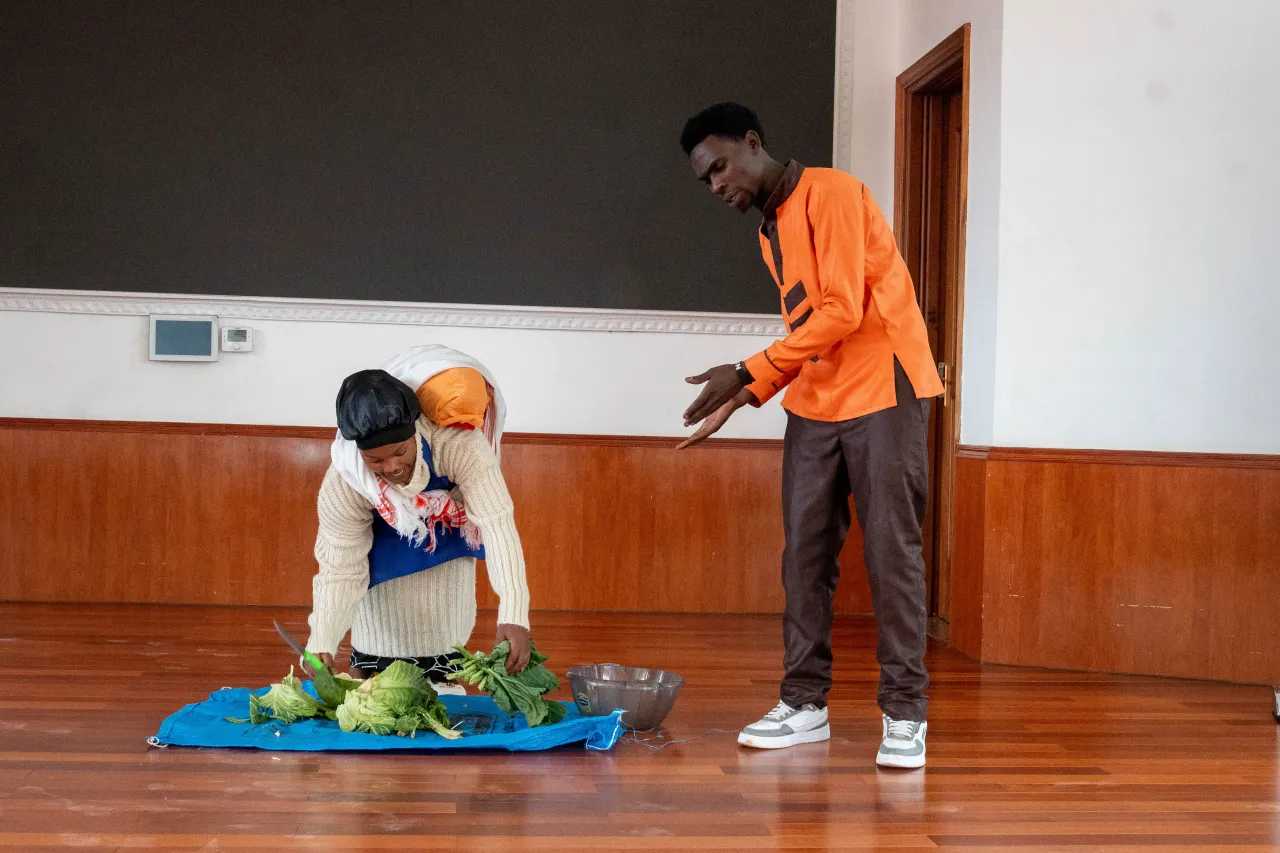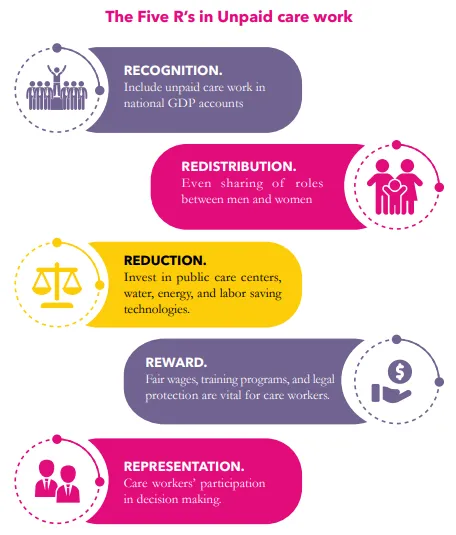The price of inequality: Why care work matters for economies

According to the Time Use Survey 2021 by the Kenya National Bureau of Statistics, women spend an average of 3 hours and 36 minutes more per day than men on unpaid care and domestic work. This disparity significantly affects women’s participation in the labour market, undermines their physical, mental, and economic well-being, restricts access to healthcare, and contributes to increased stress and fatigue.
Kenya’s Vision 2030 acknowledges that women face disadvantages in accessing productive resources and opportunities. These challenges, rooted in cultural and social norms, limit women's ability to fully develop their capabilities, particularly in accessing capital, education, training, and healthcare.
ForumCiv, in partnership with the International Labour Organisation (ILO), is currently developing a Market Systems Development (MSD) project titled “Decent, Inclusive and Productive Employment for Sustainable Development.” The project aims to strengthen the tourism and fodder sectors with a focus on enhancing the participation of women, youth, and persons with disabilities (PWDs).

A gender analysis conducted by the ILO in Narok, Kajiado, and Nakuru counties revealed deeply rooted inequalities in these sectors. Key challenges include limited access to market opportunities, inadequate entrepreneurial skills, restricted access to finance, and time poverty (the feeling of having too much to do and not enough time) resulting from the burden of unpaid care work.
To address time poverty stemming from the burden of unpaid care work, ForumCiv, the ILO, and other partners are advocating for the adoption of the National Care Policy at the cabinet and supporting its sensitization at the county level. As part of these efforts, ForumCiv has launched advocacy and awareness initiatives around the 5R Framework –Recognize, Reduce, Redistribute, Reward, and Represent – to promote the integration of care work considerations into programme design and public financing at both national and county levels.

As a result of the advocacy and awareness efforts on unpaid care work and the 5R Framework, key commitments have been made to foster partnerships with both public and private sector actors. These partnerships aim to recognise and address unpaid care work through the establishment of care-responsive infrastructure, such as childcare facilities, the integration of childcare centres in modern markets, and Early Childhood Development (ECD) centres, as well as the promotion of flexible working hours for young mothers and on-site skills development.
Recognising the influence of deeply entrenched cultural norms surrounding unpaid care responsibilities, ForumCiv will support grassroots organisations in launching awareness campaigns. These campaigns will focus on the redistribution of unpaid care work, the importance of mental health, and the promotion of reproductive health rights. ForumCiv, in partnership with Wow Mom aims to engage county governments in dialogue to secure designated spaces for childcare within public markets enhancing the productivity of women in the marketplace and addressing the issues of mental stress, sexual abuse and kidnapping of children.
Other recent articles

The power of people powered Public-Private Partnerships
Public–Private Partnerships (PPPs) are often discussed in terms of roads, power plants, housing, and other large infrastructure projects. But as discussed on the People’s Partnership Podcast, PPPs are...

ForumCiv’s social media accounts labelled as “extremist materials” in Belarus
Important message to our Belarusian followers. Any interaction with our content can now lead to legal consequences in Belarus. Please read the information below and take the necessary precautions for...

ForumCiv enters new strategic partnership
ForumCiv is proud to announce a new three-year strategic partnership with Sida, totalling SEK 137 million.